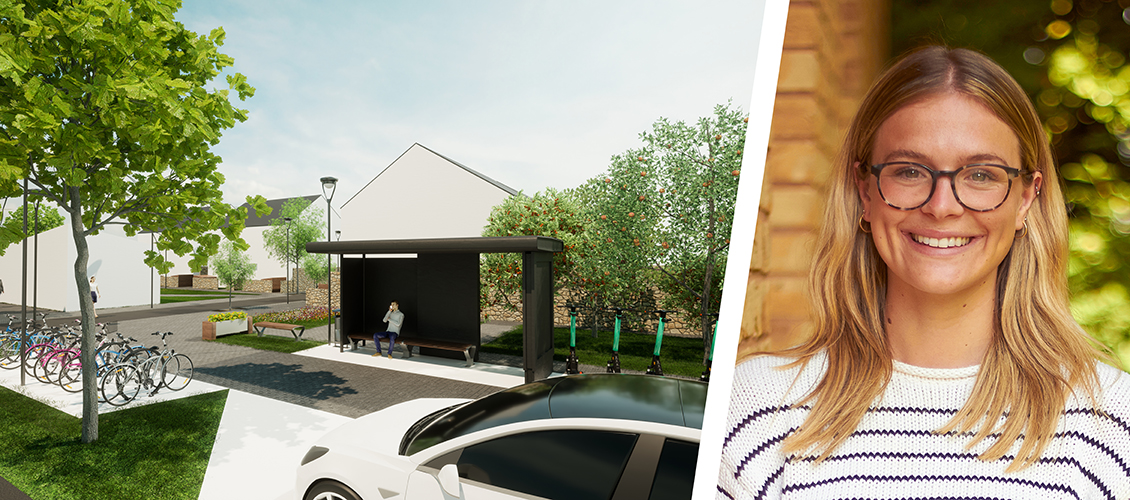Abbie Ingram, UWE Architect and final year Planning undergraduate, joined us for just over a month for some industry experience and worked alongside our team to prepare this study.
The study considers the implications of sustainable and active transport patterns and potential future car ownership on masterplanning for residential development in suburban and rural areas.
Transport is the largest emitting sector for greenhouse gases in the UK, producing 28% of the UK’s emissions. It is essential that we urgently transform our towns and villages to enable people to live sustainable, low carbon and healthy lifestyles.
Designing attractive and connected places that promote walking and cycling will underpin this approach and support healthy, active lifestyles and social connectivity.
To achieve this, we must provide neighbourhood centres and community facilities alongside improved public transport and new interventions, such as delivering integrated mobility and co-mobility hubs. In the future, AI-managed networks and autonomous vehicles for delivery and public transport will likely reduce reliance on private cars.
Other factors such as climate awareness, the post-Covid increase in agile working and increasing fuel costs will also drive change toward active transport modes and reduce car ownership. Overall these factors could potentially reduce the need for private parking in new developments (which we show already exceeds the amount required to meet current car ownership patterns).
To deliver sustainable new residential development, there must be a focus on a future vision for each site which delivers high-quality placemaking, embedding sustainable transport modes and developing site-specific approaches to parking that minimise land use and maximise future flexibility.
We are very grateful for input from Stantec and Vectos, part of SLR in the development of the study, and from the team at LHC Design, especially Amy Sanders, Nick Mann, Phil Sanders, Ewon Harding and Alex Wilson.

